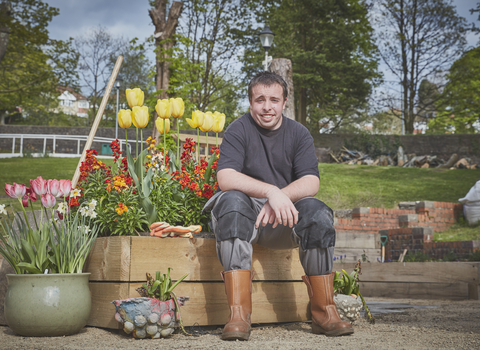Working with many languages
Image copyright Autumn Barlow / The Wildlife Trusts 2024
Identifying the need
A ‘community language’ is one that people speak alongside the dominant language of a country or region. These are also called ‘asset languages’, ‘heritage languages’, ‘first language’, ‘mother tongue’ or other terms – useful to know if you’re doing some research yourself.
Working with many languages - Community Hub (https://www.youtube.com/watch?v=Tk7InQgM7PE)
Jill from Hampshire and Isle of Wight Wildlife Trust talks about working with many languages.
Around 300 languages are spoken in the UK. We can’t translate everything.
First, you need to know which languages are spoken in your community. You can use census data and local community organisations.
Translation isn’t the aim
Because it’s impossible to translate everything word for word, instead look at the idea of “cultural interpretation”. This helps people feel more comfortable and engaged.
You do this by partnering with:
- Local community leaders
- Bilingual staff or volunteers
- Local community organisations – often very localised, like this example from Barnet. We can’t list them all, so you’ll need to do a little research yourself
- Local government
- Educational establishments – for example, “Multilingual Manchester” offers student volunteers as interpreters.
These people can advise you on how to communicate information in a culturally appropriate way.
- Would it be easier to create an infographic rather than translating some text?
- Can you hold language-specific meetings or events?
- Can you provide multiple ways for people to respond to you?
Remember that people often have a range of strengths. If English is their second language, they might be very good at listening and understanding, but struggle with speaking or writing. Often, people can read English better than they can write it. Bearing that in mind, can you produce written work in simple or plain English, but offer ways for them to contact you that don’t rely on writing? If you’re conducting a session online, how about language-specific breakout rooms?
If you work with someone who is a translator, see them as an active partner. Encourage them to work with you and give them the freedom to communicate in a way that’s natural for that audience.
If you have a budget
- Can you have a simultaneous interpreter at a meeting or event?
- Can you include closed captions for virtual meetings?
- Do you need a sign language interpreter?
Remember!
This all takes time, just like any community engagement. Adapt and adjust as you go, and actively seek feedback so you can make changes.
There’s no single answer to this, so be guided by your particular community and its needs.


The Wildlife Trusts
Have you been part of a community nature project?
We'd love to hear from you! Your experiences will be shared right here on the Community Hub and will inspire others to take action in their own neighbourhoods.


CC by 4.0 attribution
Except where noted and excluding images, company and organisation logos, this work is shared under a Creative Commons Attribution 4.0 (CC BY 4.0) Licence.
Please attribute as: “Nextdoor Nature (2022-2024) by The Wildlife Trusts funded by The National Lottery Heritage Fund, licensed under CC BY 40”



